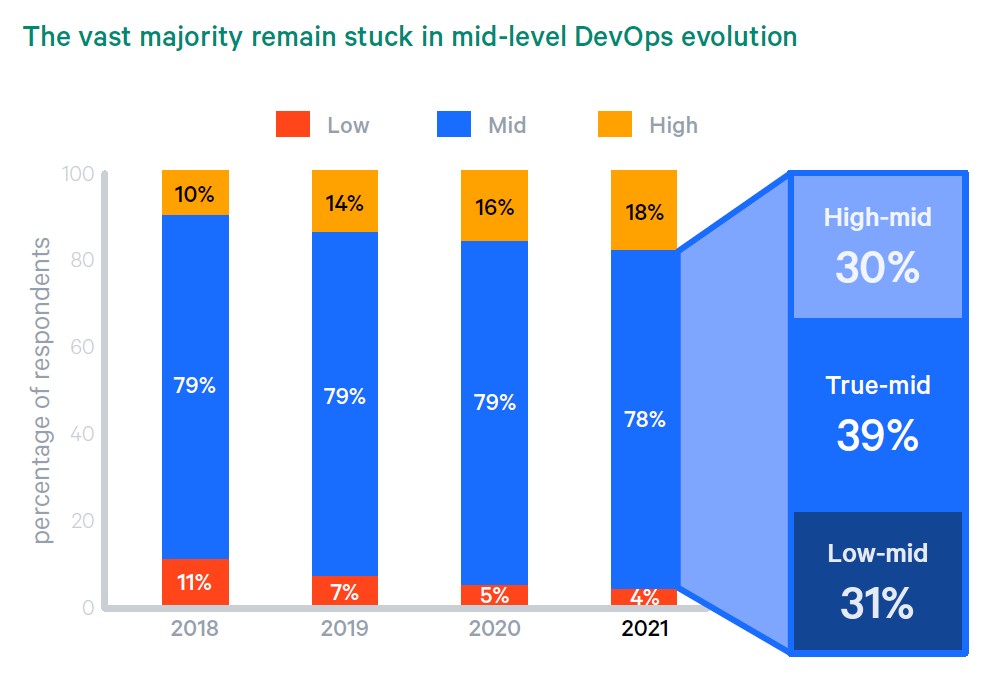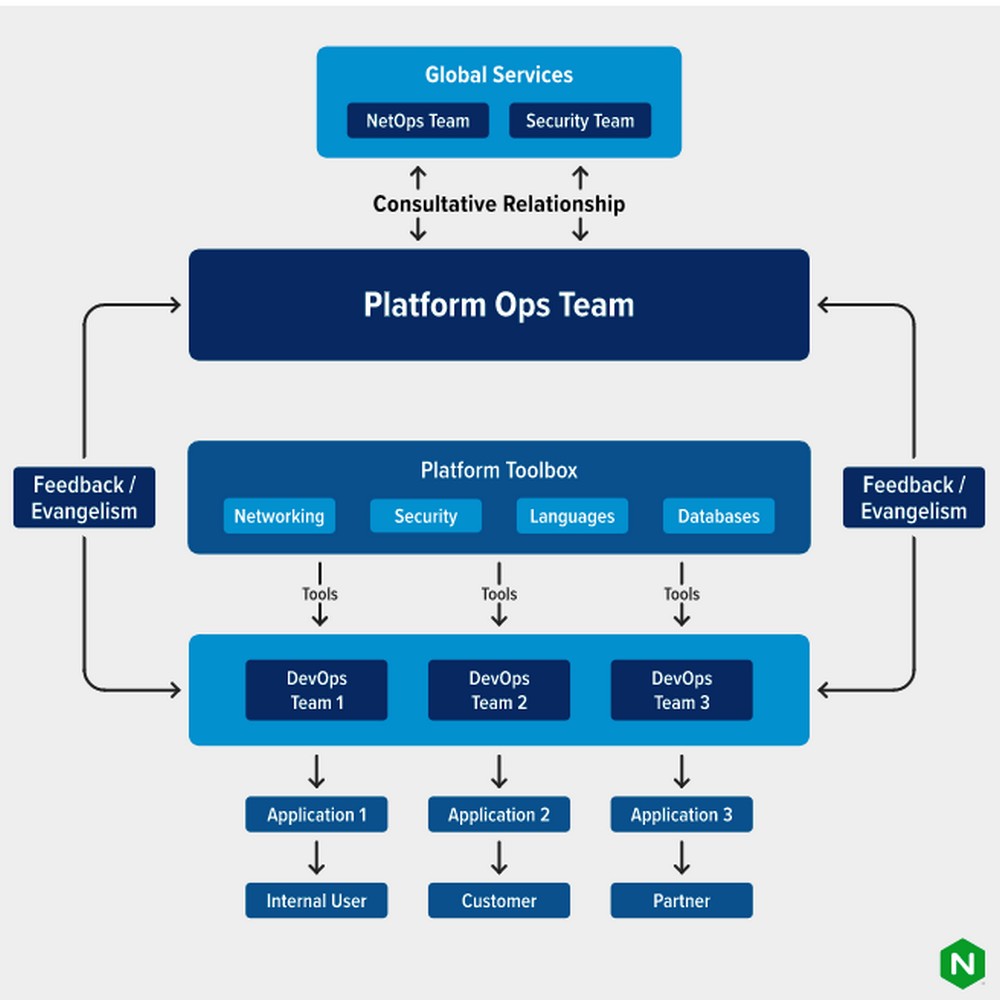The pandemic has spurred an even greater surge in DevOps activity which was already growing at pace prior to COVID. According to Red Gate Software, 74% of organisations now report having an active DevOps program, up from 47% five years ago.
While the Asia Pacific region is projected to grow the fastest of all regions as rapid digital transformation has taken hold with startups and hyper-growth businesses emerging in numbers across the region. Asia-Pacific will see the highest CAGR at 26.3% during 2021-2030 vs 24.3% CAGR for the world, according to the Allied Market Research.
The challenge for developers and IT leaders is a growing frustration with specific aspects of their implementations. In a recent Garden survey, three-quarters of developers and DevOps team members said time spent on manual DevOps tasks is generally being wasted.
In Puppet’s 2021 State of DevOps Report, 62% of IT leaders say their organisations are stuck in mid-evolution on their DevOps journeys despite high levels of automation.

There’s a disconnect. DevOps is supposed to improve time to market by encouraging collaboration and efficiency. In some cases, it does. But too often a lack of cohesion in DevOps processes is pushing developers, operations engineers, and IT leaders apart.
DevOps hurdles to transformation
One key issue hitting businesses across all sectors as they embark on transformation exercises is the lack of genuine fit-for-purpose skills. According to Dheeraj Nayal, global community ambassador and business head for the Asia Pacific, Japan region for DevOps Institute, he states in a recent interview more than 50% of digital transformation efforts have failed in the Asia Pacific region in recent years.
He notes that to some degree all large enterprises are essentially software companies today and with DevOps at the heart of the digital transformation journey, successful transformations demand new people, new skills, and upskilling of existing teams.
The World Economic Forum has predicted in light of the Fourth Industrial Revolution, almost half of corporate employees will require significant digital reskilling by 2025 – with DevOps being a critical area of demand.
Introducing Platform Ops

One way to connect all sides and get them reading from the same script is for organisations to commit to adopting Platform Ops. Platform Ops is an approach that aims to instil more structure into DevOps practices across an organisation so they can scale more efficiently.
While it may sound like the addition of just another layer will complicate an already complex set of software delivery practices, it shouldn’t. Platform Ops provides a structure for DevOps processes, allowing stakeholders access to centralised resources so they can handle tasks more efficiently by themselves.
To adopt Platform Ops, organisations need to form a dedicated team that maintains the internal marketplace of resources that acts as a self-service platform. The platform should include everything developers need to build an automated DevOps value stream. Rather than worrying about infrastructure and operations tooling, developers can focus on what they do best – building software.
Platform Ops isn’t a return to centralised IT. No one wants that. Years of IT controlling every tech resource within an organisation gave rise to shadow IT in the first place. Too much central control would frustrate developers even more and decrease the level of collaboration on teams.
What Platform Ops enables
Making the concept work requires that organisations balance rules with the freedom to innovate. While development teams still need the flexibility to do their work, Platform Ops teams should provide systems to ensure consistency and better governance.
Developers need to control things that are part of their workflows – like continuous integration systems, source control platforms and how to control integration tests. The idea is not to limit their creativity and their ability to work independently. Giving them control and a say in the day-to-day.
Platform Ops, on the other hand, should control things where there is less room for flexibility. This includes infrastructure automation, artifact repository, alerting and emergency response, infrastructure and application security, CI/CD and overall metrics.
You could make the argument that Platform Ops opens a new future for a scaled-up DevOps itself – opening channels to innovate and collaborate while installing a dose of discipline. Balancing developer creativity with the necessary administrative work that’s required frees up resources to successfully implement DevOps processes in the long term. As organisations weave Platform Ops elements into their processes, DevOps will work more productively.
If DevOps is about automation and collaboration, Platform Ops enables teams to do what they do better. Separating the core business from the platform that the organisation uses to build the core business simplifies processes and enables the DevOps practice to scale. It makes it easier to integrate best practices, and it provides the consistency that stakeholders need to make DevOps culture a reality across organisations.




